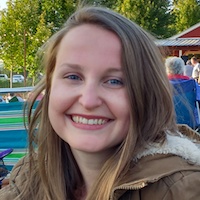
Topic: Group work collaborative activities: tracing learning trajectories throughout the accomplishment of pedagogical tasks
Abstract:
The objective of this microethnographic work is to describe how students jointly construct knowledge in group work activities during the accomplishment of pedagogical tasks in a Brazilian public school classroom. Aligning with studies that understand learning as locally contingent interactional work (Abeledo, 2009; Sahlström, 2011), this paper presents the development of a knowledge object over time within a learning trajectory (Melander, 2009). Participant observation was carried out at an elementary school which has developed its own political and pedagogical program that is intent on fostering intense critical participation and group work (Schulz, 2007; Stein, 2014). Detailed fieldnotes were produced, and audiovisual records were made of naturally occurring classroom interaction. Records of talk-in-interaction were segmented, transcribed and submitted to sequential analysis according to conversation analysis. Three talk-in-interaction excerpts are examined here featuring a small group of students engaged in a Science project about bacteria. By tracing a topic – the result of a bacteria growing experiment conducted by them – it is possible to show how the participants’ understandings change throughout their participation in collaborative activities. Students found their own ways of investigating situated learning contents and of working on that intensively with their peers in the teacher’s absence. In contrast with actions commonly found in traditional classrooms, such as evaluation and correction, pedagogical practices in collaborative group work ensured the negotiation of symmetric epistemic statuses and often featured asking and offering assistance, and making collective decisions. In addition, the analysis suggests that the problem-based nature of task design contributed to promoting situated knowledge objects. Implications of these findings about group work participant frameworks are discussed in light of sociocultural studies (Hewitt, 2004; Stahl 2009).
Biography:
Fabíola Stein is the Portuguese Teaching Assistant (TA) in Middlebury College. Born in Santa Cruz do Sul, Brazil, she has experience in teaching Portuguese as an additional language (at the Portuguese as a Foreign Language Program – UFRGS) and Spanish for Brazilians. In 2017, Fabiola received a master’s degree in Language Studies, focused on Applied Linguistics. Before that, she graduated in Linguistics and Literature (Portuguese and Spanish) in the Federal University of Rio Grande do Sul (UFRGS).
Fabíola is a member of the research group ISE (Social Interaction and Ethnography) in Brazil, which is interested in studying talk-in-interaction, classroom interaction and microethnography. Fabíola is interested in collaborative learning, tasks desing and innovative pedagogies.
